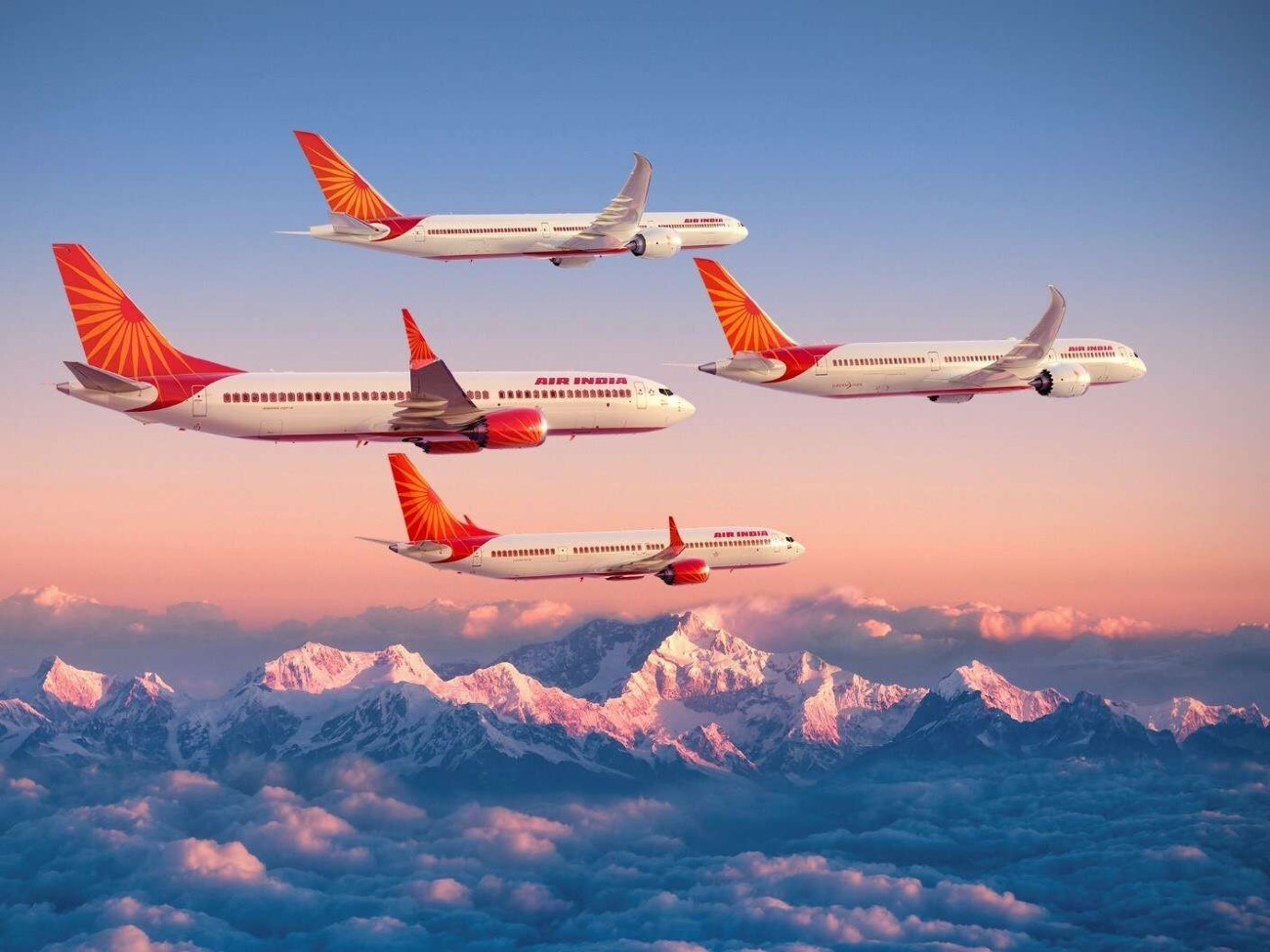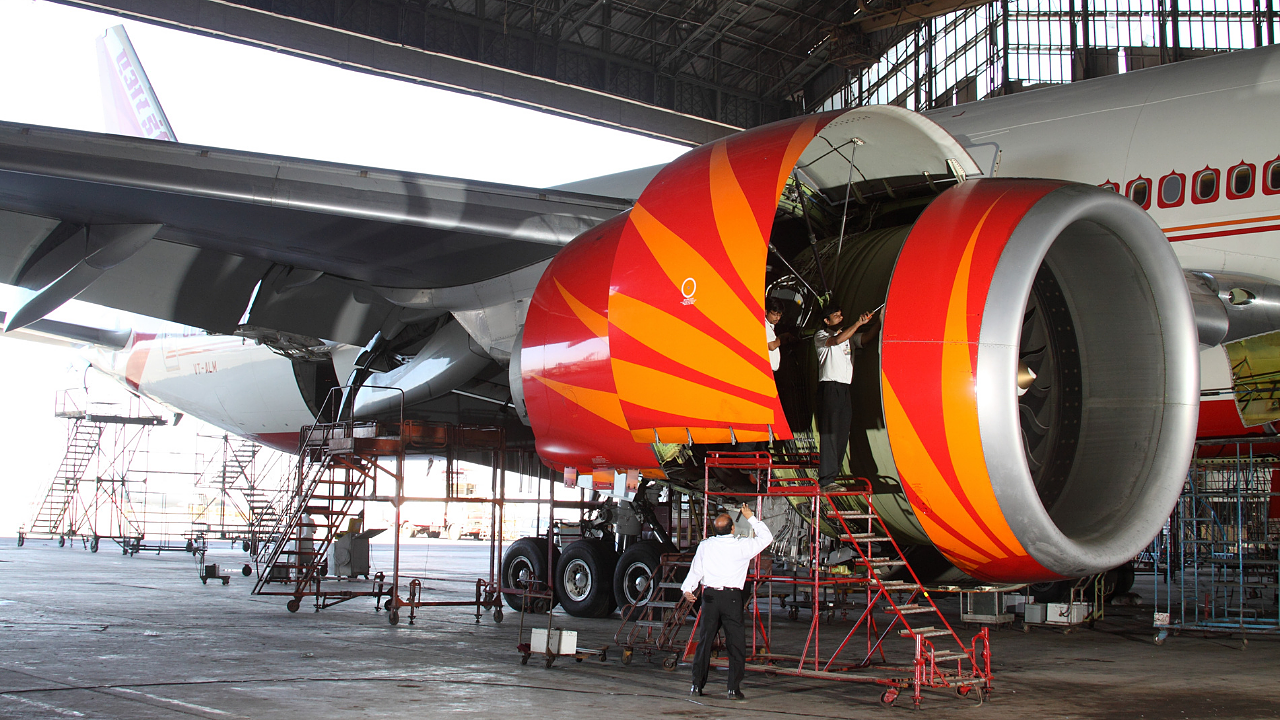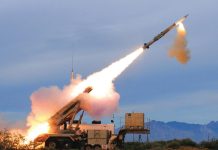OPED by Pulak Sen
Airlines in India are going to add 15% capacity, or 100 to 110 aircraft a year, and the aviation sector is looking at close to 1,200 aircraft by 2027. The largest order ever placed by an Indian carrier is for the Tata Group-held Air India, which has 470 airplanes, a mix of Airbus and Boeing planes.
Air India will be the first to induct the Airbus A-350 in India. Additionally, Air India has taken on lease 30 aircraft to meet the demand till it receives its aircraft. Another Indian carrier Indigo will add about 500 aircraft. Its competitor, Akasa Air, is adding steadily to its aircraft fleet.
Boeing has detected several issues with the manufacturing of 737 Max aircraft, which could affect the deliveries required for the fleet expansion of Indian carriers like Air India and Akasa Air. The development came after Boeing discovered that a supplier used a “non-standard manufacturing process” while installing the rear fuselage.
“This is not an immediate safety of flight issue, and the in-service fleet can continue operating safely. However, the issue will likely affect many undelivered 737 MAX aircraft, both in production and storage. We have notified the Federal Aviation Administration (FAA) of the issue and are working to conduct inspections and replace the non-conforming fittings where necessary,” Boeing said in a statement recently.
The MRO Market Potential In India
India’s aviation sector’s current fleet stands at 714 commercial aircraft; and 17 cargo, totaling 731 aircraft. Of these, 486 are Airbus types; 143 are Boeing types, 62 ATRs; 28 are Bombardier Q400; ERJ5; 1 E-175; 2 are Caravan; and 2 are Dornier 228. These figures are from April 1, 2023.
The market status of the Indian Indian MRO industry:
- The Indian MRO industry, as of 2021, was worth US$1.7 billion.
- The Indian MRO industry is expected to reach US$4 billion by 2031.
- The global MRO market was US$68.5 billion in 2021.
- The global MRO demand is expected to reach U$117 billion by 2031.
- The Indian MRO industry recorded an 8.9 CAGR, compared to a 5.6 CAGR globally
Indian Government Initiative
The 339th Report on the Action Taken by the Government to the Parliamentary Standing Committee on Transport, Tourism, and Culture on Demands for Grants (2023-24) of the Ministry of Civil Aviation (MoCA) was presented to both houses of Parliament on March 13, 2023. The report said:
- Import Duty exempted on Special Tools and Equipment for Maintenance, Repair, and Overhaul (MRO);
- Customs duty waiver that applied to spares only for Airlines extended to MRO;
- Simplified clearance processing of parts;
- 100% Foreign Direct Investment (FDI) has been permitted via the automatic route for MRO;
- Relaxed restrictions on the utilization of duty-free components from one year to three years;
- Aircraft brought into the country for MRO are allowed to stay from one month to six months without penalties;
- The Place of Supply (PoS) of MRO services changed to the location of the recipient to ensure a level playing field for MRO located in India and to incentivize the setting up of MRO in India by Indian or foreign entrepreneurs.
Providing a game-changing thrust to the setting up of MRO facilities in India, the Goods and Services Tax (GST) Council, at its meeting held on March 14, 2020, decided to reduce the GST rates on MRO services provided by domestic MROs with effect from April 1 that year as follows:
- GST on Domestic MRO services was reduced from 18% to 5%.
- Sub-contracted transactions to domestic MRO by foreign MRO are now treated as exports with zero-rated GST.
As a result, when foreign OEM sub-contracts work to an Indian MRO, the work done by the Indian MRO amounts to the export of services by an Indian entity to a foreign entity, attracting no tax.
Current Status Of The Indian MRO Industry
With such big fleets of Indian carriers, where does India stand on the MRO front? Air India Engineering Service Limited (AIESL) is the largest MRO owned by the Indian government. It has six main bases: Delhi, Mumbai, Nagpur, Kolkata, Hyderabad, and Trivandrum.

AIESL, in its bases, has several capabilities, from cabin refurbishment to aircraft weighing to component repairs to airframe repair to engine repair and overhaul. Apart from these bases, it undertakes line maintenance at various stations at home and overseas, such as Ras-Al-Khaimah, Sharjah, Dubai, and Kathmandu, all with wheel change capabilities.
IndiGo, India’s largest airline, opened its second MRO facility at Kempagowda International Airport, Bangalore, on November 17, 2022. The airline signed a 20-year agreement with BIAL to build a hangar of 13,000 sqm on a plot of land of five acres.
The facility will accommodate two narrow-body aircraft and support infrastructure, including a Quick Engine Change (QEC) shop, warehouse, and engineering offices. The MRO will be the airline’s second venture after the one at Delhi Airport, which is a smaller one.
Air Works India, India’s largest third-party MRO, is certified to maintain more than 50 types of aircraft. It is also the most diversified MRO in the country, with a pan-India presence in 27 locations with close to 1,500 employees. It also provides commercial aircraft asset management services, avionics, cabin and interior solutions, 3D printing, and aircraft refinishing services apart from MRO-related offerings.
Its customers include both civil (fixed-wing & rotary-wing) and military customers, apart from global Original Equipment Manufacturers (OEMs), commercial airlines, business aviation companies, and leading global lessors.
GMR AeroTechnik is also a third-party MRO, based in Hyderabad, with full capabilities in all departments of MRO, from major maintenance to complete body painting and composite repair to component repair. It has narrow-body capabilities, specializing in Airbus, ATR, and Bombardier. Besides Hyderabad, where it carries out major maintenance, it also carries out line maintenance in Delhi, Goa, and Kathmandu.
Air Works India and GMR perform MRO for various international airlines and possess the respective countries’ Regulatory certifications, apart from FAA and EASA.
AAR-Indamer Technics Private Limited is a joint venture between AAR, a major MRO in the USA, and Indamer Technics (the oldest MRO in India). It will set up a facility in Nagpur. This new joint venture plans to initially perform major checks of Airbus A320 family aircraft under DGCA, EASA, and FAA approvals. All required support workshops will be part of the MRO.
The MRO business is capital-intensive and requires significant investment in infrastructure, materials, training of manpower, and technology. An airline’s expenditure in MRO accounts for 15% of total revenues — the second highest expense after fuel cost. The industry is highly regulated and holds critical importance for Indian civil aviation.

Currently, the majority of the MRO services are outsourced to countries like Singapore, Malaysia, and the United Arab Emirates, which demonstrates a huge demand and low supply model domestically.
MRO infrastructure is expanding in India due to incentives provided by the government and alliances formed by companies with foreign MROs, as noted above. Indian MROs have also started obtaining global certifications for their services.
MRO is a labor-intensive industry that depends on the availability of a skilled workforce at a lower cost to improve profitability. India holds an edge over MRO hubs like the US, Europe, Singapore, and others as it has the availability of low-cost certified technicians.
It started last year, and it will see more mergers and acquisitions of Indian MRO companies, and new entrants will emerge in this buoyant aviation sector in India. This is the trend that India will undergo for the next couple of years as the fleet size of airlines grows.
Growth Of The Indian MRO Industry
The MoCA also informed that the Directorate General of Civil Aviation (DGCA) had approved 140 MROs in India until October 2022, of which 27 new MROs were approved since the GST was reduced.
Considering India’s growing aviation market, technology, and skill base, the government announced new MRO Guidelines on September 1, 2021, to create a congenial atmosphere in the country for the development of the MRO industry for aircraft, helicopters, drones, and their engines and other parts.
These guidelines provide for allotment of land at the Airports Authority of India (AAI) facilities through the call of open tenders without levy of any royalty or cess of whatsoever nature to MRO operators. The new guidelines would further encourage the MRO organizations and OEMs to set up workshops in India and create a conducive environment towards making India a global hub of MRO.
Challenges Ahead And Skilling Workforce
With this exponential growth of the Indian commercial aviation industry, the Indian MRO industry has to rise to the challenge in the coming time. They should upscale their equipment and process, build their logistics, and develop their ecosystem.
Skilling and training for the MRO industry is the need of the hour, and overseas MROs and skilling schools could participate in providing a skilling center of excellence in specific trades using distance learning and virtual training methods.
More opportunities can be generated if the bilateral agreement between FAA, EASA, and the DGCA on mutually accepting civil maintenance certifications can be agreed upon while negotiating and signing bilateral between the MoCA and its overseas counterparts.
Some OEM-MRO Collaborations
- GMR Aero Technic Limited will work on converting Boeing 737 passenger aircraft to freighter aircraft.
- GMR Aero Technic partners with Spirit Aero as an aftermarket repair provider for nacelle components and radomes in India.
- GMR to provide a 4-year AME license training program with Airbus as the knowledge partner.
- Boeing and Air Works Accelerate MRO Capabilities for the Indian Navy’s P-8I Fleet – in India, for India.
- Boeing appoints AIESL to do maintenance of two Boeing 777 of the VIP Squadron of the Indian Air Force and the Boeing P-8I aircraft of the Indian Navy.
- AIESL signs an engine maintenance service agreement with Willis Lease Finance Corporation to provide maintenance to their CM56-5b engines.
- GMR Aero Technic and Kuehne+Nagel signed a three-year-long contract for aircraft maintenance logistics.
Some Recommendations
- Policy Support: We have our NCAP 2016 and the amendment to it. However, we now need an Aerospace Industry Transformation Map.
- R&D Support: The government and the MRO Industry should invest in R&D for new technologies such as Artificial intelligence and Augmented Reality.
- Encourage domestic firms to participate in developing products and services with 1:1 funding by the Indian government and the firm.
- Facilitate the growth of a robust MRO ecosystem to support the Indian MRO industry.
- Develop skill-building for the Indian MRO industry.
- Last but not least, the Indian government should urge foreign OEMs/MRO to support the development of the Indian MRO industry through technology transfer.
In conclusion, as the Indian commercial airline industry grows in the next decade, the Indian MRO industry will also grow commensurate with this growth, provided it invests independently for much-needed expansion or forms joint ventures with OEMs or international MROs to face the challenges in the coming days.
- Pulak Sen is the founder and secretary-general of the MRO Association of India. He can be reached at Sen.Pulak (at) gmail.com
- Follow EurAsian Times on Google News




